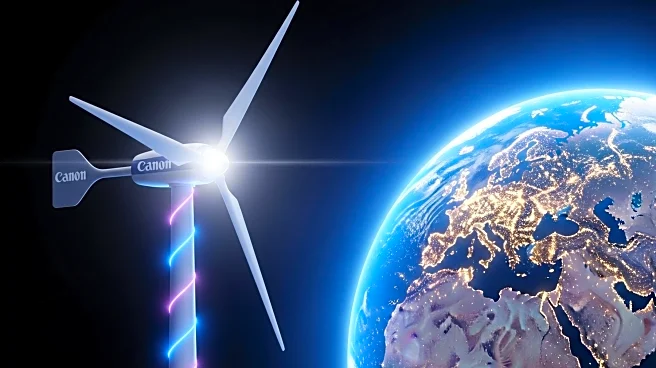What's Happening?
The International Energy Agency (IEA) has revised its forecast for global renewable power growth, projecting a total capacity of 4,600 gigawatts by 2030, down from the previous estimate of 5,500 gigawatts. This adjustment is attributed to policy changes in the United States and China, including the early phase-out of federal tax incentives for renewable energy in the US under President Trump's administration and China's shift from guaranteed electricity prices to competitive auctions for renewable projects. Despite the lowered forecast, the IEA notes positive developments in other regions, such as India and the Middle East, where renewable energy capacity is expected to grow significantly.
Why It's Important?
The revised forecast highlights the impact of policy decisions on the renewable energy sector, which is crucial for combating climate change. The reduction in expected growth could hinder global efforts to triple renewable energy use by 2030. The changes in the US and China, two major players in the global energy market, could influence other countries' energy policies and investment decisions. The IEA's report underscores the need for stable and supportive policies to ensure continued growth in renewable energy, which is vital for energy security and reducing reliance on fossil fuels.
What's Next?
The IEA's report suggests that while growth in the US and China may slow, other regions are poised to increase their renewable energy capacity. India, for example, is on track to meet its 2030 targets, potentially becoming the second-largest growth market for renewables. The agency also raised forecasts for renewable capacity in Germany, Italy, Poland, and Spain. These developments indicate a shift in the global renewable energy landscape, with emerging markets playing a more significant role in driving growth.
Beyond the Headlines
The geopolitical implications of renewable energy development are significant, as countries seek to enhance energy security and reduce fuel import needs. The IEA's report highlights the importance of renewables in achieving these goals, particularly in the current geopolitical climate. The deployment of renewable energy can diversify energy sources and reduce dependence on fossil fuels, contributing to greater financial and energy security.










